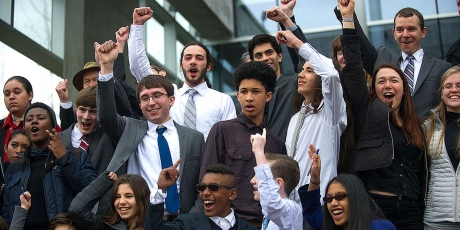- About
- Topics
- Picks
- Audio
- Story
- In-Depth
- Opinion
- News
- Donate
- Signup for our newsletterOur Editors' Best Picks.Send
Read, Debate: Engage.
| topic: | Climate action |
|---|---|
| located: | Bosnia and Herzegovina |
| editor: | Katarina Panić |
Dragoslav Babić from Bosnia and Herzegovina is a father of three. He lives in a parents' house where he grew up. In a suburb area of the north-western town of Prijedor the houses are crammed next to each other. Most of them have wood-burning stoves, but some use coal to heat their places. The smoke goes from the fire into the air directly, with no filters at all.
"You can't take the kids outside during the winter. It's not safe. When I realised that, I decided to change something," Dragoslav told FairPlanet.
Seven years ago, he replaced his wood furnace with pellet one. That was an investment that he could afford at that time. Recently, he learned the EBRD is providing a loan to urgently needed green economy investments in the country's residential sector.
"I applied, and I got 20 per cent off for my housing loan. Now, I build my brand-new house that is going to be not only energy-efficient but carbon-neutral too. I have to go step by step, and one day I'm going to produce as much energy as I consume, I have no doubt about it," Dragoslav added.
The system is simple. There is the equipment you buy once. It uses energy from the ground, from the water and the air and brings it to your place. You give the surplus produced when the weather conditions are ideal, to power companies. In exchange, they compensate you for the shortage when the weather conditions are not favourable.
"There are two key obstacles. The first one is lack of money. The investment is quite expensive compared to the standard of living in this country. The second one is the lack of awareness, although Bosnia and Herzegovina's rate of environment-related deceases is the highest in the continent, according to the European Environment Agency report released earlier this month," Prijedor-based environmentalist Dragan Zrnić told FairPlanet.
It is estimated that by 2050, every second EU citizen will produce electricity for their own needs. The transition to the post-carbon economy in developing countries won't go that fast but will go. As in many other reforms, authorities are slow, sluggish and indecisive, burdened by bureaucracy.
"Still, we are far from where we were some five or ten years ago, thanks to environmental CSO's and to support by international funds, rather than local," Dragan added.
Image by Ralf Vetterle

